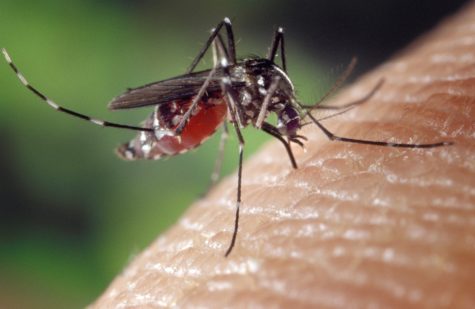SAN ANTONIO, Texas — Is the world close to living in a Zika virus-free world? It seems so with the development of a new Zika vaccine, according to new research from a collaborative team from Trudeau Institute, Texas Biomedical Research Institute’s Southwest National Primate Research Center, and Walter Reed Army Institute of Research.
“The vaccine has been shown to be safe for non-pregnant humans, but of course we need to know if it is safe and effective for the people at greatest risk: pregnant women and their fetuses,” says In-Jeong Kim, PhD, a viral immunologist at Trudeau Institute, in a media release. “Our proof-of-concept studies conducted at Trudeau and Texas Biomed show very promising results that the vaccine given before pregnancy will provide high levels of protection for mothers and babies.”
What is Zika?
The Zika virus — a mosquito-borne illness — was responsible for a massive outbreak that took place in Brazil and other countries throughout the Americas between 2015 and 2016. Zika infections can induce miscarriages and severe birth defects, including mothers giving birth to babies with abnormally small heads and neurodevelopmental disorders — known as Congenital Zika syndrome.
“It’s important to test vaccines before the next large outbreak, because there will be another,” adds Jean Patterson, PhD, a virologist at Texas Biomed and senior author. “Zika is part of a family of viruses known to go through cycles. These viruses tend to spread rapidly through naïve populations that have never been exposed to the virus before, then infections drop down for years because most people have been exposed. As more and more people are born, there is a new group of naïve individuals in which the virus can once again wreak havoc. We want to help break that cycle.”
Animal studies show great promise for the vaccine
The Zika vaccine uses the same technology that produced a Japanese encephalitis vaccine. Studies show the new treatment is effective and safe in non-pregnant animals. Phase 1 clinical trials in humans also found it’s safe for use and elicits a protective immune response.
Since there are ethical and safety issues with administering an experimental vaccine to women and their fetuses, however, the researchers used animals to model immune responses during their experiments.
Mice studies showed the Zika vaccine prevented 80 percent of fetal abnormalities. Further, an analysis of fetal blood samples showed the vaccine stimulated the production of neutralizing antibodies in the mother that passed to the fetus.
The team also tested small primates called marmosets because of their increased sensitivity to Zika infection in comparison to other non-human primates. Scientists injected four marmosets with the vaccine and later exposed them to the Zika virus after getting pregnant. The vaccine was 90 percent effective in protecting against the Zika virus. Only one out of 12 offspring tested positive for Zika.
“Because the animals became pregnant at different times, our study was able to show the vaccine confers protection for at least 18 months after vaccination, which is important for showing long-lasting immunity,” Dr. Patterson concludes.
The findings appear in the journal npj Vaccines.
